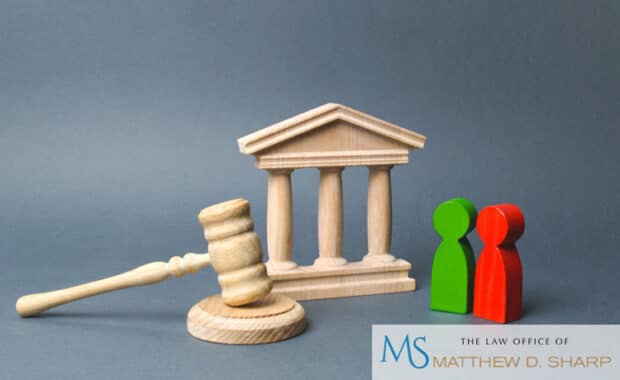If a person goes to trial and is found guilty what will happen next?
The answer is that you can appeal the case to attempt to reverse the judgment based upon constitutional error or other error that was harmful to your fundamental right to a fair trial.
Generally, a defendant has thirty days to appeal a judgment. This deadline can be extended by filing a motion for new trial or motion in arrest of judgment. Those motions may be filed at the same time, but must be filed within thirty days following the judgment. Filing a motion for new trial extends the time to file a notice of appeal to ninety days after the judgment was issued. The trial court then has seventy five days from the judgment to hold a hearing on a defendant’s motion for new trial. If the court does not hold a hearing on a defendant’s motion for new trial then the motion is denied as an operation of law and the trial court loses jurisdiction.
Once a defendant files a motion for new trial or notice of appeal then he is entitled to be released on bond pending the outcome of his appeal. A defendant is entitled to an appeal for any case where a defendant was not sentenced to a term of confinement of ten years or more, but not for any offense listed in Article 3g(a)(1) of the Texas Code of Criminal Procedure.
Appeal bonds may be granted on motion by the defense counsel or they may be issued by the court on its own. The court has the right to impose reasonable conditions on the defendant in order to assure that the defendant will be available for the outcome of the appeal. Many courts in Texas will impose probation-like conditions on an appeal bond.
Appeals in Texas can operate in many ways. If a defendant is appealing a judgment from a Justice or Municipal court then the appeal is perfected in the County Court at Law. Any subsequent appeal from that court will go to the intermediate courts of appeals, and then on to the Court of Criminal Appeals, the highest court for criminal cases in Texas. Appeals from District courts or County Courts at Law go directly to the intermediate courts. If the intermediate courts deny the appeal then a defendant may petition the Court of Criminal Appeals for discretionary review of the case. If the Court of Criminal Appeals denies the petition, then a defendant will not be entitled to maintain an appeal bond and he will be remanded into custody to serve his sentence.
If you have been convicted of a crime and want to appeal the case you need an attorney that will fight to preserve all of your appellate rights. Contact the law firm of The Law Office of Matthew D. Sharp today if you or a loved one has been wrongfully convicted of a crime and we will give you a free consultation to discuss your appellate options.




